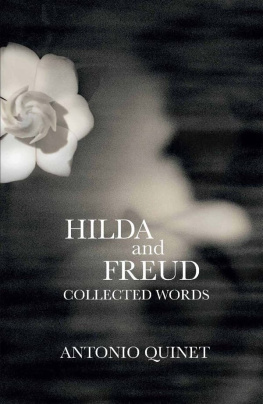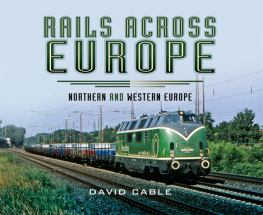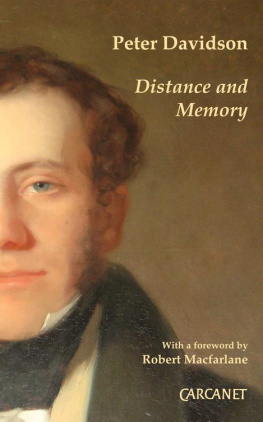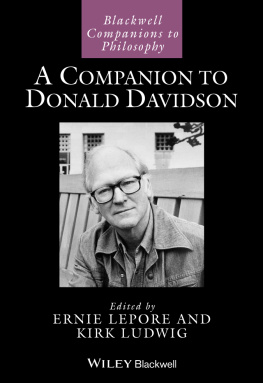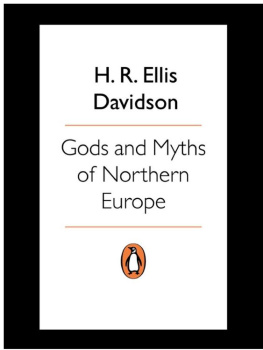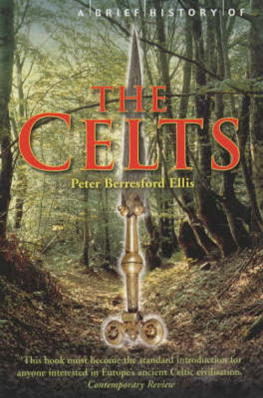Hilda Ellis Davidson - Gods and Myths of Northern Europe
Here you can read online Hilda Ellis Davidson - Gods and Myths of Northern Europe full text of the book (entire story) in english for free. Download pdf and epub, get meaning, cover and reviews about this ebook. genre: Science. Description of the work, (preface) as well as reviews are available. Best literature library LitArk.com created for fans of good reading and offers a wide selection of genres:
Romance novel
Science fiction
Adventure
Detective
Science
History
Home and family
Prose
Art
Politics
Computer
Non-fiction
Religion
Business
Children
Humor
Choose a favorite category and find really read worthwhile books. Enjoy immersion in the world of imagination, feel the emotions of the characters or learn something new for yourself, make an fascinating discovery.

- Book:Gods and Myths of Northern Europe
- Author:
- Genre:
- Rating:3 / 5
- Favourites:Add to favourites
- Your mark:
- 60
- 1
- 2
- 3
- 4
- 5
Gods and Myths of Northern Europe: summary, description and annotation
We offer to read an annotation, description, summary or preface (depends on what the author of the book "Gods and Myths of Northern Europe" wrote himself). If you haven't found the necessary information about the book — write in the comments, we will try to find it.
Gods and Myths of Northern Europe — read online for free the complete book (whole text) full work
Below is the text of the book, divided by pages. System saving the place of the last page read, allows you to conveniently read the book "Gods and Myths of Northern Europe" online for free, without having to search again every time where you left off. Put a bookmark, and you can go to the page where you finished reading at any time.
Font size:
Interval:
Bookmark:
Hilda Ellis Davidson
Gods and Myths of Northern Europe
Introduction
We will take heart for the future, Remembering the past.
T. S. ELIOT, The Rock
We are at last beginning to know and understand the value of the myth.
MIRCEA ELIADE, Myths, Dreams and Mysteries
The Myth-Makers
The mythology of a people is far more than a collection of pretty or terrifying fables to be retold in carefully bowdlerized form to our schoolchildren. It is the comment of the men of one particular age or civilization on the mysteries of human existence and the human mind, their model for social behaviour, and their attempt to define in stories of gods and demons their perception of the inner realities. We can learn much from the mythologies of earlier peoples if we have the humility to respect ways of thought widely differing from our own. In certain respects we may be far cleverer than they, but not necessarily wiser.
We cannot return to the mythological thinking of an earlier age; it is beyond our reach, like the vanished world of childhood. Even if we feel a nostalgic longing for the past, like that of John Keats for Ancient Greece or William Morris for medieval England, there is now no way of entry. The Nazis tried to revive the myths of ancient Germany in their ideology, but such an attempt could only lead to sterility and moral suicide. We cannot deny the demands of our own age, but this need not prevent us turning to the faith of another age with sympathetic understanding, and recapturing imaginatively some of its vanished power. It will even help us to view more clearly the assumptions and beliefs of our own time.
For centuries our children have been brought up on the myths of Greece and Rome. These have dominated our schoolrooms and inspired our poets, and in them there is much beauty and wisdom. We have largely neglected however the mythology of our own forbears, the Anglo-Saxons and Vikings who settled in the British Isles and worshipped their gods there before Christianity came. I believe this to have been to our considerable loss, since the northern peoples who created their own mythology should surely arouse as much interest and curiosity as those of the Mediterranean lands.
We know something of the qualities of these peoples from the literature which they have left behind, as well as from tales of their achievements recorded by outsiders. They had courage, vigour, and enthusiasm, an intense loyalty to kindred and leaders, and a keen appreciation of fair dealings between men. They had unusual respect for their women-folk, and at best their conception of marriage allowed for real cooperation and companionship between man and wife. They were great individualists this was both their weakness and their strength and resented any attempt to curb their freedom of action. Nevertheless they were capable of considerable self-discipline, and could accept adversity cheerfully, without whining or self-pity. A man who was prepared to die for what seemed to him important was held in honour, whether friend or enemy, and won even greater admiration if he could die with a jest on his lips.
We learn from their literature that they had a keen sense of the dignity of man, and of the sanctity of human relationships. The record of early Christian saints and scholars in Anglo-Saxon England women as well as men bears witness to their quick intelligence and aptitude for mystical thought as well as tough intellectual achievement. The group of novels which we call the Icelandic Sagas shows appreciation of both tragedy and comedy in the lives of ordinary folk, at a time long before Hardy and Ibsen. In view of this, it seems worth while to discover what kind of myths were created and treasured by these people, these vigorous individualists who changed the history of western Europe by their achievements.
Unfortunately there are difficulties in the way, and to explain the nature of these something must be said of the history of heathenism in north-western Europe. At the time when Rome was supreme, the Germanic tribes were the barbarians on the outskirts of the Empire, sometimes resisting the Roman armies, sometimes working with them as allies. Rome had considerable influence on their way of life, but in language and in beliefs they seem to have remained largely untouched. When the Empire at last collapsed, the Germanic barbarians, most of them still heathen, pushed forward to overrun the rich lands no longer protected by the Roman armies. The time which we call the Migration period, from about the fourth to the sixth century after Christ, was one of continual movement and restlessness in western Europe. At this time the Angles and Saxons moved westward and took possession of England, bringing with them over the North Sea their heathen beliefs and practices. Elsewhere Franks, Vandals, Alamanni, Ostrogoths, Visigoths, and a score of lesser peoples were striving to find lands on which to settle and some degree of security for themselves and their sons in a bewildering world. As time went on, the independent bands of warriors under their princely leaders became fewer in number. They cancelled each other out, and little settled kingdoms became the order of the day. There was rivalry and strife between these kingdoms, and gradually one absorbed another, many small dynasties vanishing or becoming no more than legends. By the time the great nations emerged, and men thought of Anglo-Saxon England or Merovingian France as established powers, most of the Germanic peoples had given up their heathen beliefs and adopted Christianity.
At the end of the sixth century a little group of missionaries crossed the Channel to bring the Christian faith to Kent. Other Christian teachers were already working in the west of Britain, and before long the temples of the heathen gods were replaced by little churches of wood, brick, and stone, and carved crosses rose everywhere in honour of the Christian God. By A.D. 731 a brilliant Christian scholar in the new monastery of Jarrow in northern England, the man we know as the Venerable Bede, set out to write a book surveying the growth of the Faith from one end of England to the other. Though the heathen religion in Britain was not yet dead, its days were numbered. On the Continent most of the Germanic peoples had already rejected the old gods, with a few exceptions like the Saxons, the Frisians, and the Danes.
In Scandinavia the new Church was much longer gaining a foothold. Not until the tenth and eleventh centuries were the people of Norway converted by those doughty Christian kings, Olaf Tryggvason and Olaf the Holy. These two waged unceasing battle against the heathen gods, smashing their idols, burning their temples, and either driving out their followers or putting them to a painful death in the name of Christ. Some of those driven out settled in Iceland, where there were no kings and no persecution. But even in Iceland the fires of heathenism were dying down, and in the year 1000 the Icelandic Assembly, after a calm appraisal of the situation, decided for Christianity. Denmark too yielded to the persuasion of the missionaries, and when in 1015 Canute the Dane conquered England he was fully prepared to become a pillar of the Church. The Swedes were the most stubborn in their faithfulness to the heathen religion, but by 1164 a Christian bishop ruled in Uppsala, the old stronghold of Odin and Freyr.
Thus we see why we can learn comparatively little about the heathen myths from England and Germany, where Christianity was established early. We have to turn for information to Scandinavia, where a vigorous heathen population flourished for centuries after Augustine sailed for Kent, or to places in the north-west where the Scandinavian settlers left the marks of their influence. In the last days of their heathenism, Viking adventurers from Norway and Sweden were the scourge and terror of the church in Europe. They swooped down on villages, monasteries, and churches in Britain, France, Germany, and Spain. They burned and plundered, they carried off chalices, crucifixes, and jewelled book covers as loot. It must have seemed to the Christians as if these robust sea-robbers would conquer the western world and usher in a new age of darkness. Vikings ruled in the Orkneys and Shetlands, in the Hebrides, Man, and Dublin. They wiped out the community in Columbas monastery at Iona. In 875 they sacked Lindisfarne, a centre of learning and inspiration renowned through Christendom, and all civilized Europe was shocked and saddened by the news. The few monks who survived massacre wandered for years through the fells with the body of their sainted Abbot Cuthbert, who had made Lindisfarne a place of spiritual power, until they found a resting-place for his remains in Durham. Paris and Hamburg had been plundered in 845; Cadiz and Seville suffered the same fate. In Ireland the wife of a Viking chief, a heathen seeress, spoke her prophecies from the holy altar of Clonmacnoise.
Font size:
Interval:
Bookmark:
Similar books «Gods and Myths of Northern Europe»
Look at similar books to Gods and Myths of Northern Europe. We have selected literature similar in name and meaning in the hope of providing readers with more options to find new, interesting, not yet read works.
Discussion, reviews of the book Gods and Myths of Northern Europe and just readers' own opinions. Leave your comments, write what you think about the work, its meaning or the main characters. Specify what exactly you liked and what you didn't like, and why you think so.

